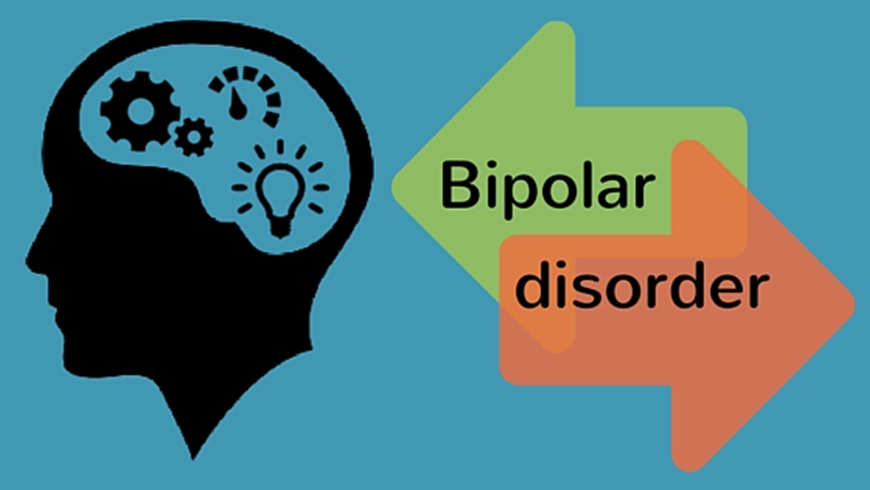Understanding Bipolar Depression: Causes, Symptoms & Management
Bipolar depression is a complex mood disorder marked by intense depressive episodes alternating with periods of elevated mood. With proper diagnosis and a personalized treatment plan, individuals can manage symptoms effectively through bipolar disorder treatment.

Mental health is a multifaceted domain, and among its many conditions, bipolar depression stands out due to its complexity and impact on day-to-day life. While many people are familiar with the term “bipolar disorder,” fewer truly understand what bipolar depression entails, how it differs from other types of depression, and why early recognition and treatment are essential. This article dives into the depths of bipolar depression, helping you understand its nature, signs, and ways to manage it effectively.
What Is Bipolar Depression?
Bipolar depression refers to the depressive phase of bipolar disorder—a mental health condition characterized by extreme mood swings that include emotional highs (mania or hypomania) and lows (depression). During the depressive phase, individuals may experience deep sadness, hopelessness, fatigue, and a loss of interest in activities they once enjoyed.
Unlike unipolar depression (commonly known as major depressive disorder), bipolar depression occurs alongside episodes of elevated mood, which is what makes the diagnosis more nuanced.
Types of Bipolar Disorder
Understanding bipolar depression requires understanding the broader spectrum of bipolar disorder. There are several types:
-
Bipolar I Disorder: Characterized by manic episodes lasting at least seven days or requiring hospitalization, usually alternating with depressive episodes.
-
Bipolar II Disorder: Involves a pattern of depressive episodes and hypomanic episodes (less severe than full-blown mania), but never full manic episodes.
-
Cyclothymic Disorder (Cyclothymia): A milder form involving periods of hypomanic and depressive symptoms lasting for at least two years.
-
Other Types: These include bipolar symptoms that don’t neatly fit into the above categories but still cause significant distress or impairment.
Symptoms of Bipolar Depression
Symptoms of bipolar depression can significantly disrupt a person’s ability to function, both personally and professionally. Common symptoms include:
-
Persistent sadness or emptiness
-
Loss of interest in hobbies or activities
-
Changes in appetite and sleep patterns
-
Fatigue or loss of energy
-
Feelings of worthlessness or excessive guilt
-
Difficulty concentrating or making decisions
-
Thoughts of death or suicide
These symptoms can be severe and may last for weeks or months if left untreated. It’s important to note that people with bipolar disorder may not always recognize their depressive or manic episodes, which can delay diagnosis and treatment.
Causes and Risk Factors
The exact cause of bipolar disorder—and by extension, bipolar depression—is unknown, but several factors are believed to play a role:
-
Genetics: Bipolar disorder often runs in families, suggesting a strong genetic component.
-
Brain Structure and Function: Differences in brain chemistry, function, and structure have been observed in individuals with bipolar disorder.
-
Environmental Triggers: Stress, trauma, substance abuse, or significant life events may trigger or worsen episodes in vulnerable individuals.
-
Hormonal Imbalances: Disruptions in hormones may contribute to mood swings.
Understanding these potential causes helps in creating a tailored treatment plan for individuals diagnosed with bipolar disorder.
Diagnosing Bipolar Depression
Bipolar depression is often misdiagnosed as major depression due to the overlapping symptoms during depressive episodes. However, a thorough clinical assessment by a mental health professional can reveal patterns of mood elevation that differentiate bipolar depression from other mood disorders.
Diagnosis may include:
-
Psychiatric evaluation
-
Medical history review
-
Mood charting (tracking mood over days or weeks)
-
Input from family members or caregivers
A correct diagnosis is crucial since the treatment approach for bipolar depression differs significantly from that of unipolar depression.
Managing and Treating Bipolar Depression
The management of bipolar depression often requires a multi-faceted approach involving medication, psychotherapy, and lifestyle adjustments. A treatment plan is typically individualized to ensure the best outcome.
1. Medication
-
Mood Stabilizers like lithium are often the first line of treatment.
-
Atypical Antipsychotics (e.g., quetiapine or lurasidone) may help control depressive symptoms.
-
Antidepressants, when used alone, can sometimes trigger manic episodes, so they are typically prescribed in combination with mood stabilizers.
2. Psychotherapy
-
Cognitive Behavioral Therapy (CBT) helps individuals recognize and change negative thought patterns.
-
Interpersonal and Social Rhythm Therapy (IPSRT) focuses on stabilizing daily routines and improving interpersonal relationships.
-
Family-focused therapy educates and involves loved ones in the treatment process.
3. Lifestyle Changes
-
Establishing a consistent sleep schedule
-
Reducing alcohol and caffeine intake
-
Regular physical activity
-
Stress-reduction techniques such as mindfulness or yoga
Early and consistent treatment significantly improves long-term outcomes and helps reduce the frequency and severity of episodes.
Living With Bipolar Depression
Living with bipolar depression is challenging, but with proper support and treatment, individuals can lead fulfilling and productive lives. Building a strong support system, staying informed, and being proactive in managing one’s health are all vital components of living well with bipolar disorder.
It’s also essential for individuals to stay in close communication with their mental health providers and to seek help immediately if symptoms worsen. Suicide risk can be elevated during depressive episodes, so any sign of self-harm or suicidal thoughts should be treated as a medical emergency.
Final Thoughts
Understanding bipolar depression is the first step toward effective management and emotional well-being. The condition, while serious, is treatable with the right combination of medical care, therapy, and personal support. If you or a loved one are experiencing symptoms of bipolar depression, don’t hesitate to seek professional help from an experienced psychiatrist in florida.
With compassionate support and medical guidance, individuals with bipolar disorder can find stability, hope, and a renewed sense of purpose through effective bipolar disorder treatment.

 opabehaviorhealth
opabehaviorhealth